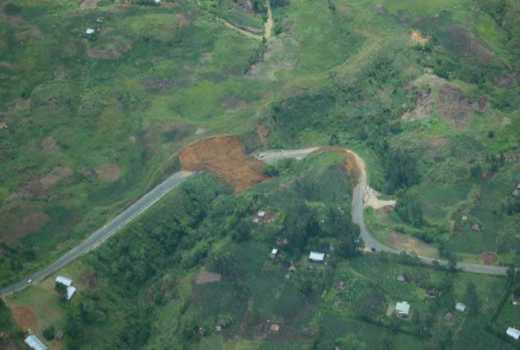×
The Standard e-Paper
Fearless, Trusted News

Papua New Guinea faces a long road to recovery after the powerful earthquake that hit the nation’s rugged highlands more than 10 days ago, with the death toll now believed to have climbed to more than 100, its leader said.
PNG Prime Minister Peter O’Neill flew over the worst-hit areas on Wednesday after a magnitude 6.7 aftershock struck the mountainous region already reeling from a 7.5 quake on Feb. 26.